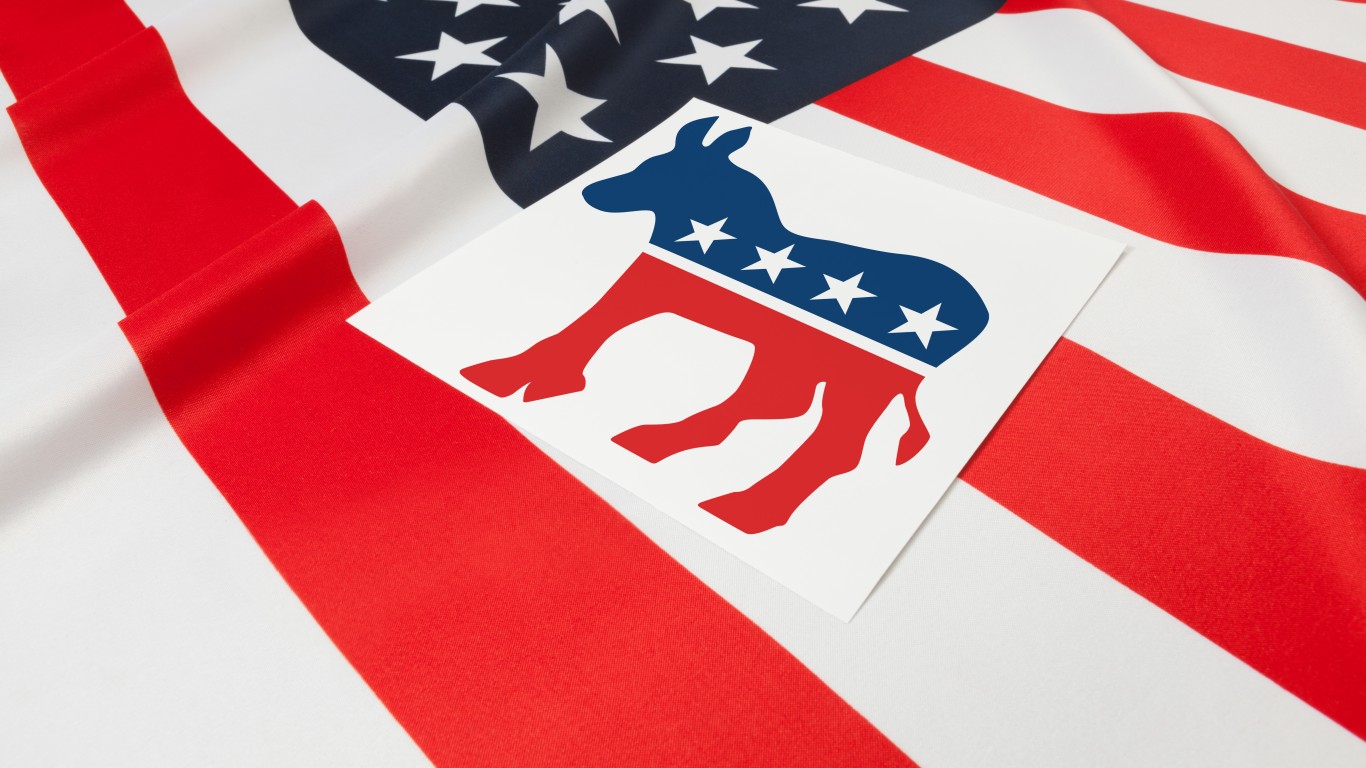
The 118th Congress is on track to be one of the least productive in American history. Since the Republicans regained the House of Representatives in the 2022 midterms, few meaningful bills have made it through Congress. Since 2014 the non-profit Lugar Center and McCourt School of Public Policy have released the bipartisan index which tracks cross-party cooperation. While there was a slight uptick in bipartisanship in 2023, Congress is intensely partisan.
This article will examine the House Democrats who have proven to be the most amendable to reaching across the aisle.
Why This Matters
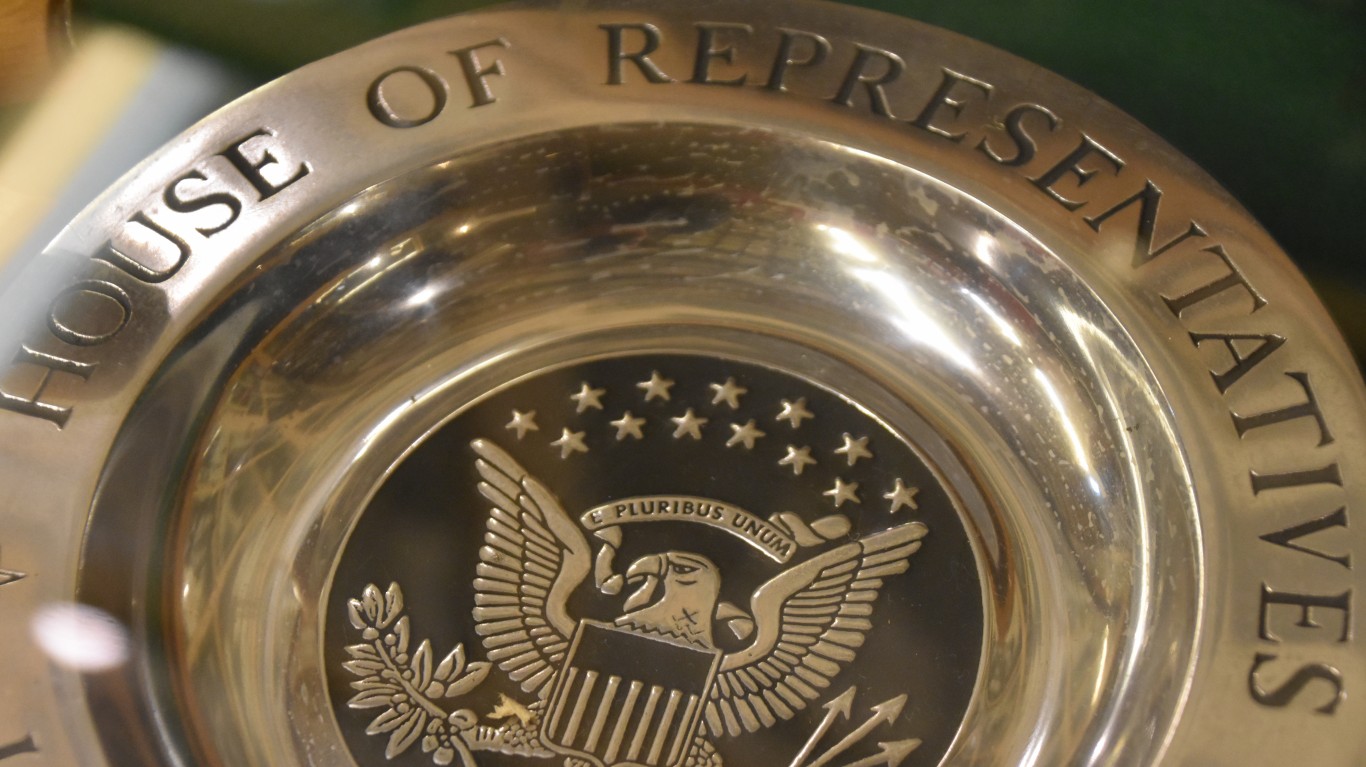
In an election year, American voters will determine not just the presidency, but who controls Congress. One party may well win the government trifecta but it is more likely that one party will control the House, the other the Senate. If any meaningful legislation is to be passed by the 119th Congress, cooperation and bipartisanship will be needed so it is important to know who the potential deal makers and deal breakers are.
Chris Pappas

New Hampshire 1st Congressional District
Assumed office: 2019
Bipartisan ranking: 3
Chris Pappas is the most bipartisan Democrat in the House of Representatives and the third most bipartisan member overall. He was first elected to New Hampshire’s 1st district in 2018 and won re-election in a competitive district fairly comfortably in 2020 and 2022. He joined the Problem Solvers Caucus in 2023 and touted his bipartisan credentials in a February 2024 press release:
No political party has a monopoly on good ideas, and policies that put the needs of everyday people first are found on the left and the right.
Pappas faces a primary challenge in September 2024 but is widely expected to prevail and hold onto his seat in the general election in November.
Don Davis
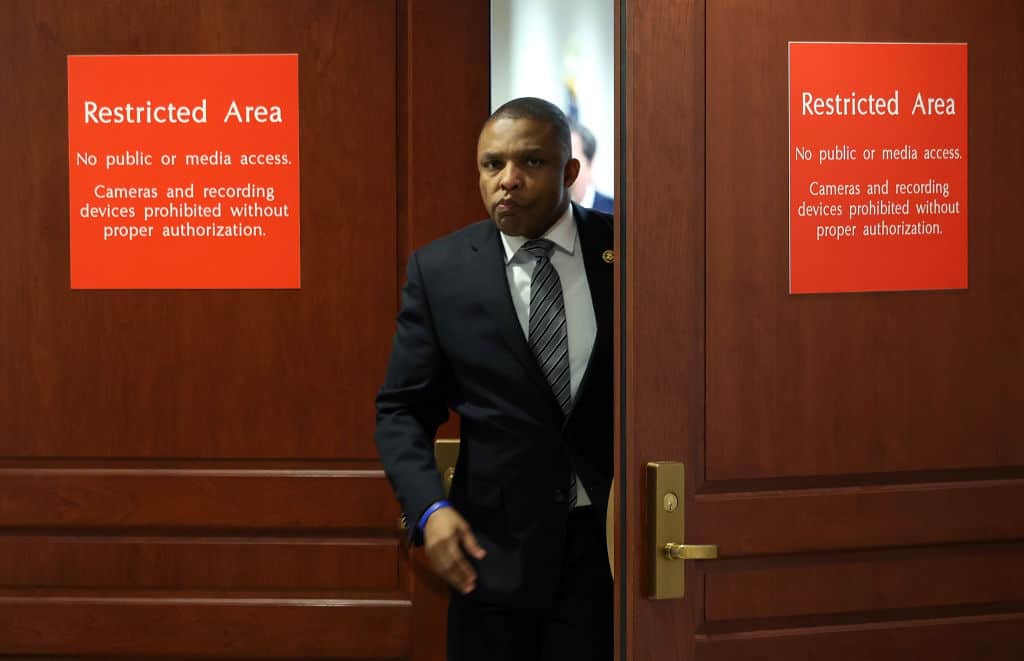
North Carolina 1st Congressional District
Assumed office: 2023
Bipartisan ranking: 5
North Carolina’s Don Davis has had a busy first term in the House of Representatives, he’s sponsored or co-sponsored almost 800 bills. As a member of the Problem Solvers Caucus, his willingness to work across party lines is a point of pride. In a press release regarding his high position on the bipartisan index, he referred to his past military experience:
When I served our country in the U.S. Air Force, our focus was always our mission, not our political party. These principles continue to guide me in my elected service.
North Carolina’s controversial redistricting for 2024 means Davis could have a tougher time retaining his seat than he did in winning it.
Susie Lee
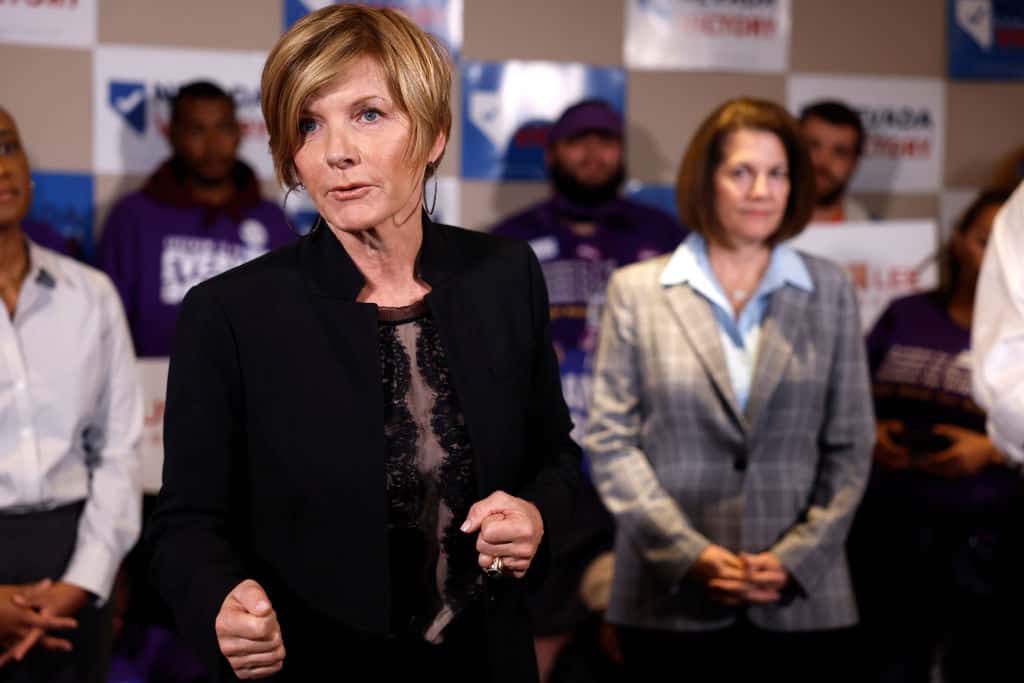
Nevada 3rd Congressional District
Assumed office: 2019
Bipartisan ranking: 7
Susie Lee’s commitment to bipartisanship is evident from her leading position in bipartisan and moderate caucuses. She is the vice-chair of the Problem Solvers Caucus and co-chair of the bipartisan Congressional Caucus Women’s Issues. She is also the Whip for the New Democrat Coalition, a centrist caucus for moderate Democrats. On her high ranking on the bipartisan index, she said:
I’m proud to have been named Nevada’s most bipartisan Member of Congress and one of the top ten most bipartisan lawmakers in the U.S. House of Representatives. I will continue working with my Republican colleagues to help Nevada’s families, small businesses, seniors, and veterans.
Nevada is a swing state and Lee’s district is considered one of the more competitive seats in the House.
Josh Gottheimer
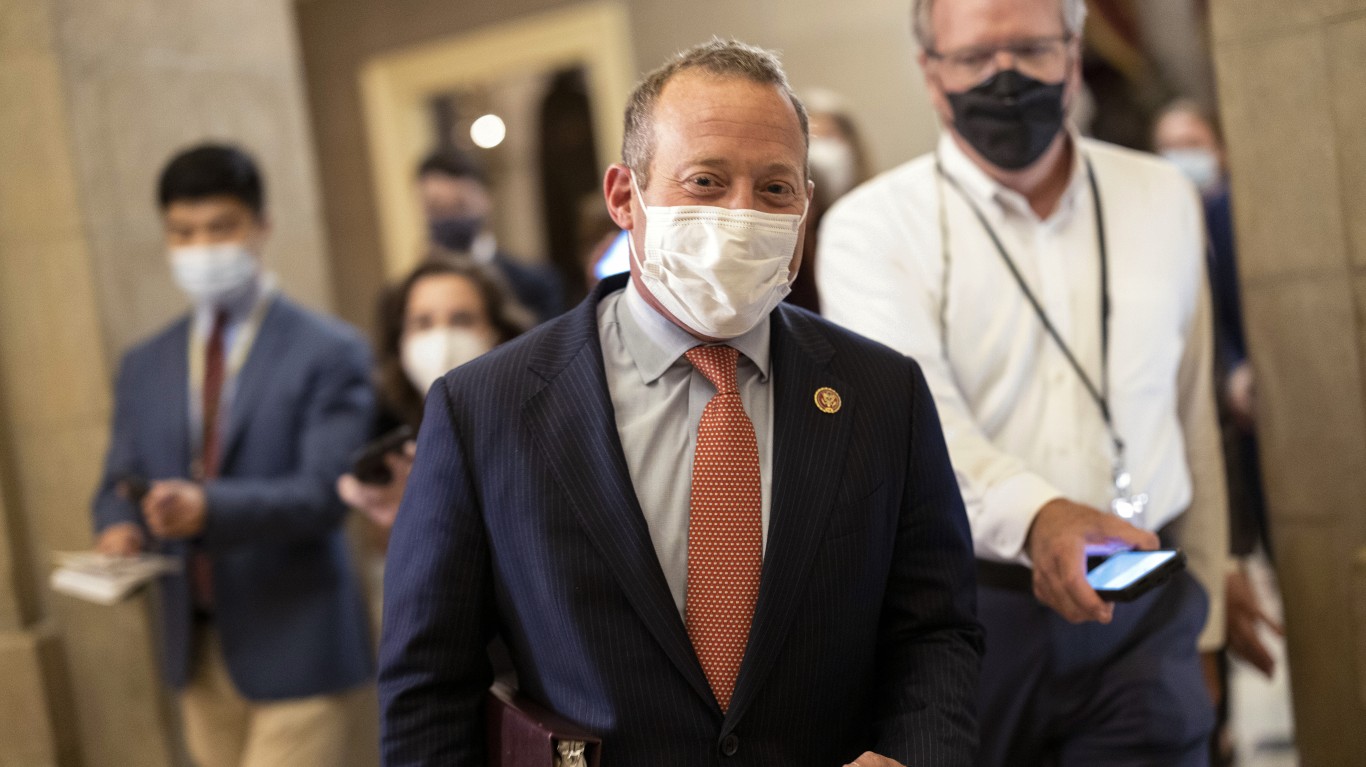
New Jersey 5th Congressional District
Assumed office: 2017
Bipartisan ranking: 9
One of the more conservative Democrats in the House, Josh Gottheimer is the co-chair of the Problem Solvers Caucus and a member of the New Democrat Coalition and Blue Dog Coalition. He is a vocal supporter of Israel, one of the few broadly bipartisan issues remaining in Congress. In May 2024, he led a bipartisan effort to condemn the International Criminal Court’s decision to issue warrants against Israeli officials. He is “strongly considering” a run for governor of New Jersey in 2025.
Marie Gluesenkamp Perez
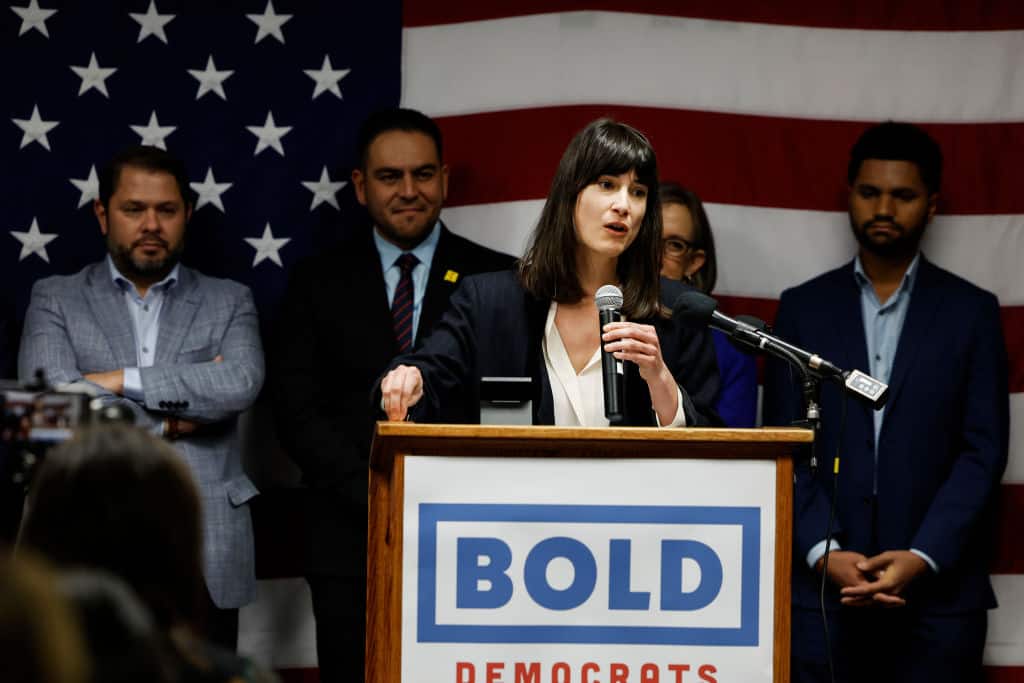
Washington 3rd Congressional District
Assumed office: 2023
Bipartisan ranking: 12
Marie Gluesenkamp Perez won a highly competitive race for Washington’s 3rd district in 2022, flipping the seat for the Democrats. She is a member of the Problem Solvers Caucus and co-chair of the Blue Dog Coalition. A moderate, she has occasionally rankled her party’s left flank over her pro-second amendment views and fiscal conservatism. She faces a difficult re-election campaign in 2024.
Jimmy Panetta
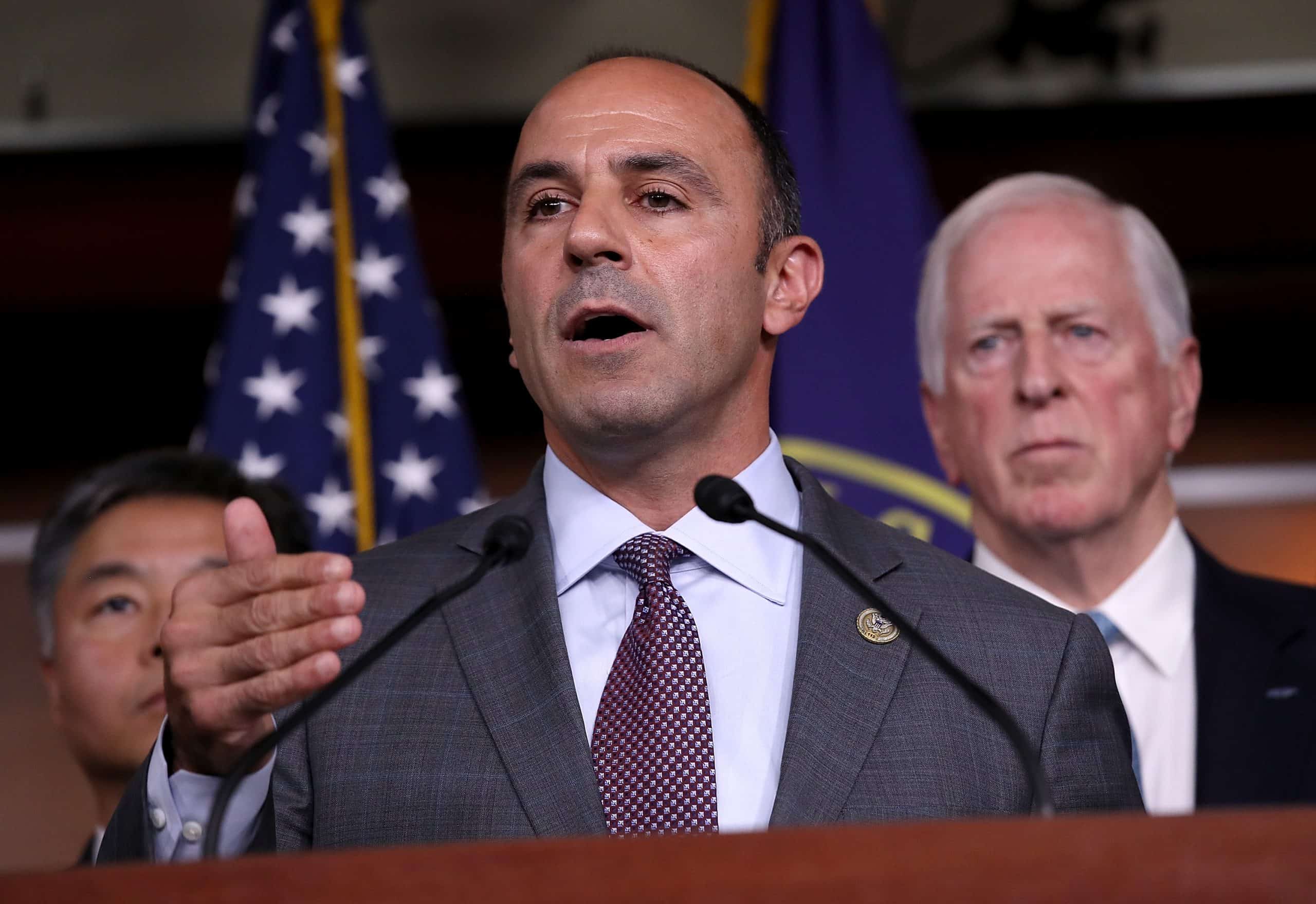
California 19th Congressional District
Assumed office: 2017
Bipartisan ranking: 13
Jimmy Panetta is the son of Leon Panetta, Bill Clinton’s Chief of Staff from 1994-97 and Barack Obama’s Secretary of Defense from 2011-13. Jimmy won a lopsided race for the 20th district in 2016 and easily won re-election in 2018 and 2020 before redistricting changed his seat to the 19th. Panetta enjoys a safe seat in a staunchly blue state so his record of bipartisanship isn’t motivated by political expediency.
He strongly supports Ukraine and Taiwan and visited both countries this summer. He met Ukrainian leader Volodymyr Zelenskyy in August and joined a bipartisan delegation to Taiwan in June.
Elissa Slotkin
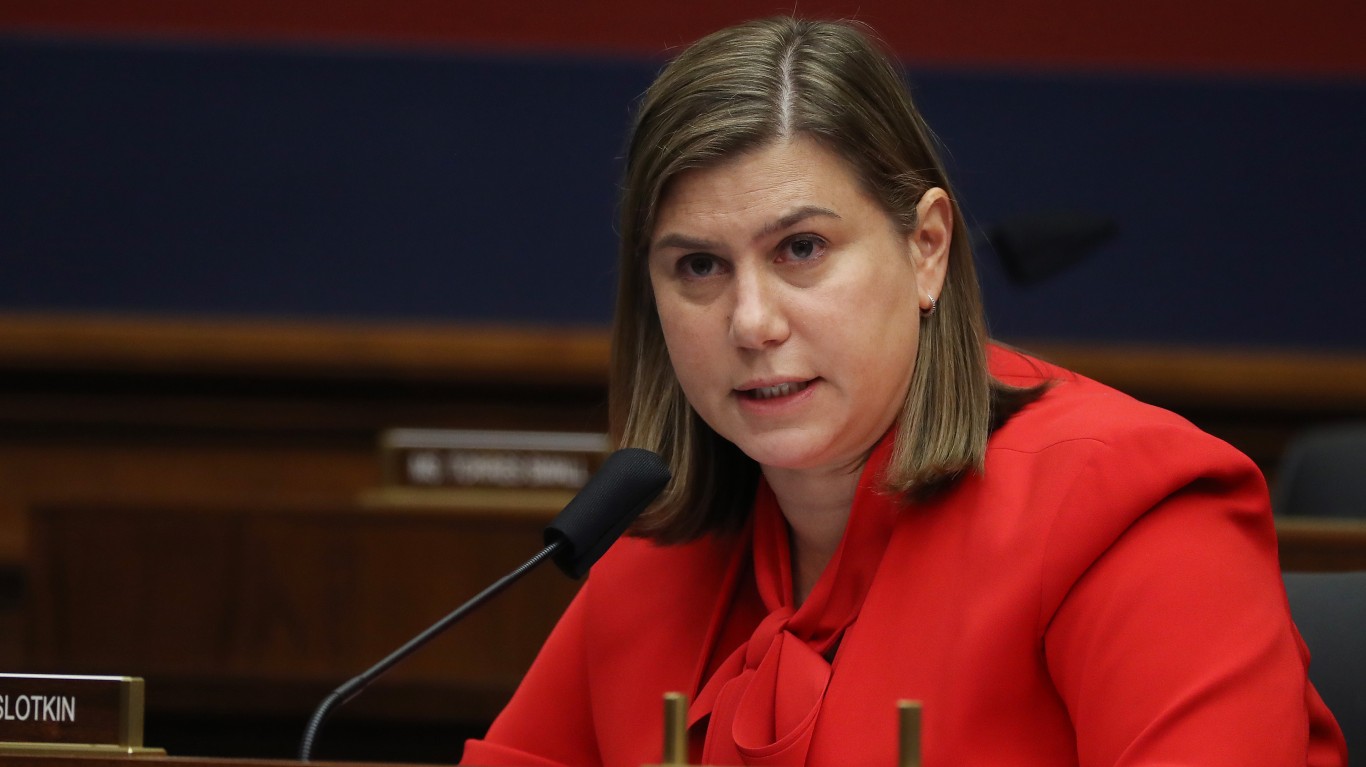
Michigan 7th Congressional District
Assumed office: 2019
Bipartisan ranking: 14
Elissa Slotkin won a competitive race to flip Michigan’s 7th district in 2018 and twice won re-election in competitive races in the 7th and then 8th district. Like most of the members featured in this article, she is part of the Problem Solvers Caucus and New Democrat Coalition. She has worked across party lines on legislation on border security, national security, and prescription drug costs. As she explained in a press release touting her high position on the bipartisan index:
The last year has seen far too much partisanship – but it has also demonstrated that when members of Congress do our jobs, reach across the aisle, and negotiate in good faith, we can accomplish important things.
She will run for the Senate in November in one of the key swing states in the 2024 elections.
Abigail Spanberger

Virginia 7th Congressional District
Assumed office: 2019
Bipartisan ranking: 17
Abigail Spanberger won a close race for Virginia’s 7th district in 2018, flipping the seat to the Democrats. She won reelection in competitive races in 2020 and 2022, increasing her majority slightly each time. A moderate and member of the New Democrat Coalition and Problem Solver Caucus, she is a leading voice in the battle to ban members of Congress from trading individual stocks.
Despite being popular with voters of both parties, legislation to ban trading has stalled. She continued the effort into the 118th Congress alongside Chip Roy in 2024. On her record of cross-party cooperation, she said:
At a time when the most extreme voices can be some of the loudest, lawmakers who remain focused on delivering for our communities must continue to focus on bridging our divides.
She will not continue her work in the House in 2025 as she is running for the governor’s mansion in Virginia.
Joe Neguse
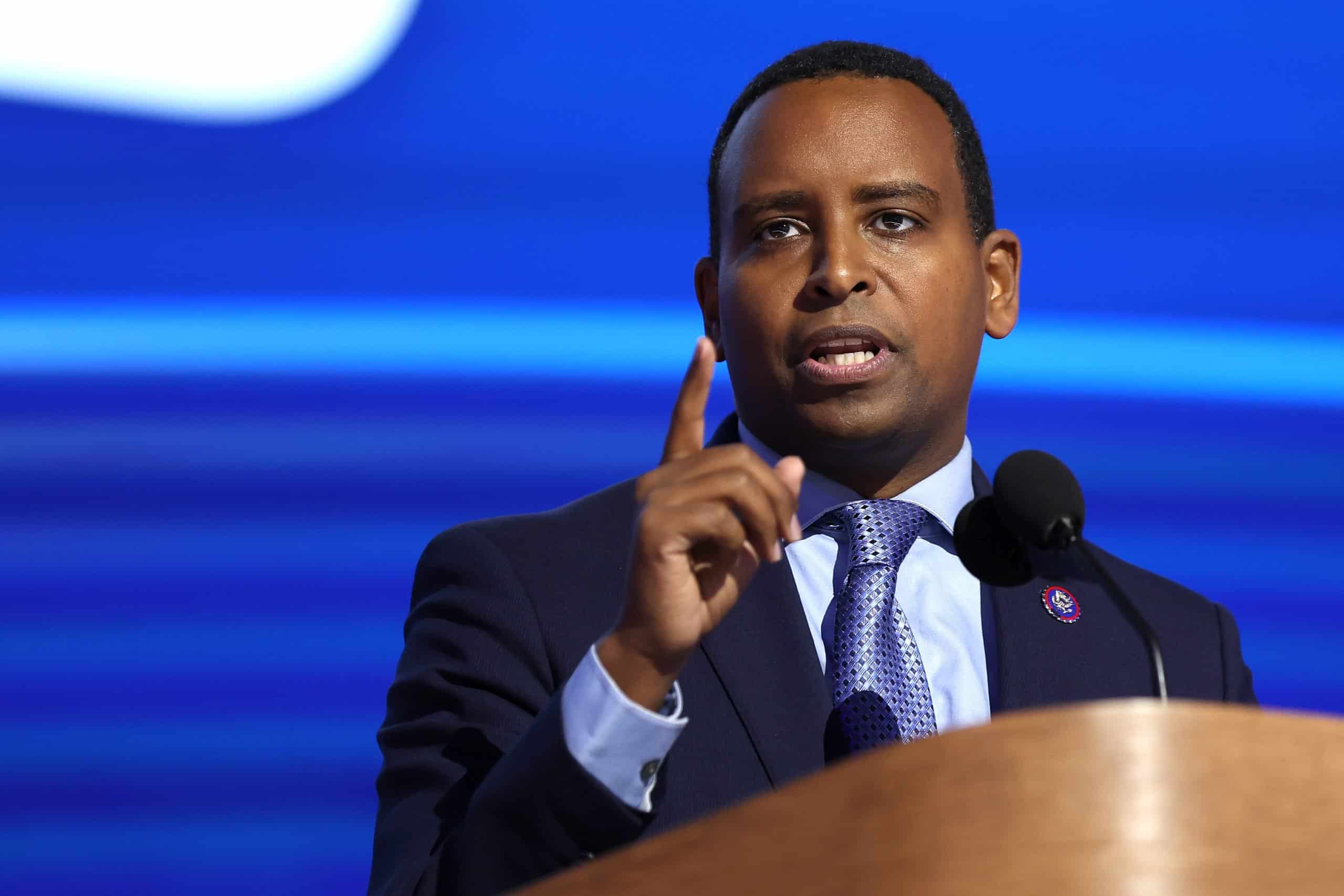
Colorado 2nd Congressional District
Assumed office: 2019
Bipartisan ranking: 18
Joe Neguse won a comfortable victory for the seat in 2018 in a solidly blue district that has been in Democratic hands since the 1970s. Neguse received the John F. Kennedy New Frontier Award in 2023 due to his effective work building bipartisan coalitions in the House. He founded or co-founded three bipartisan caucuses for managing wildfires, fentanyl prevention, and the Colorado River. On his bipartisan record, Neguse said:
I believe that we are at an inflection point as a country. A time at which it is of the utmost importance that we work together to foster greater collaboration and dialogue with those who we may disagree.
After sailing through an uncontested primary, he gained almost three times the votes of his Republican challenger and shouldn’t have any trouble being re-elected in November.
Chrissy Houlahan
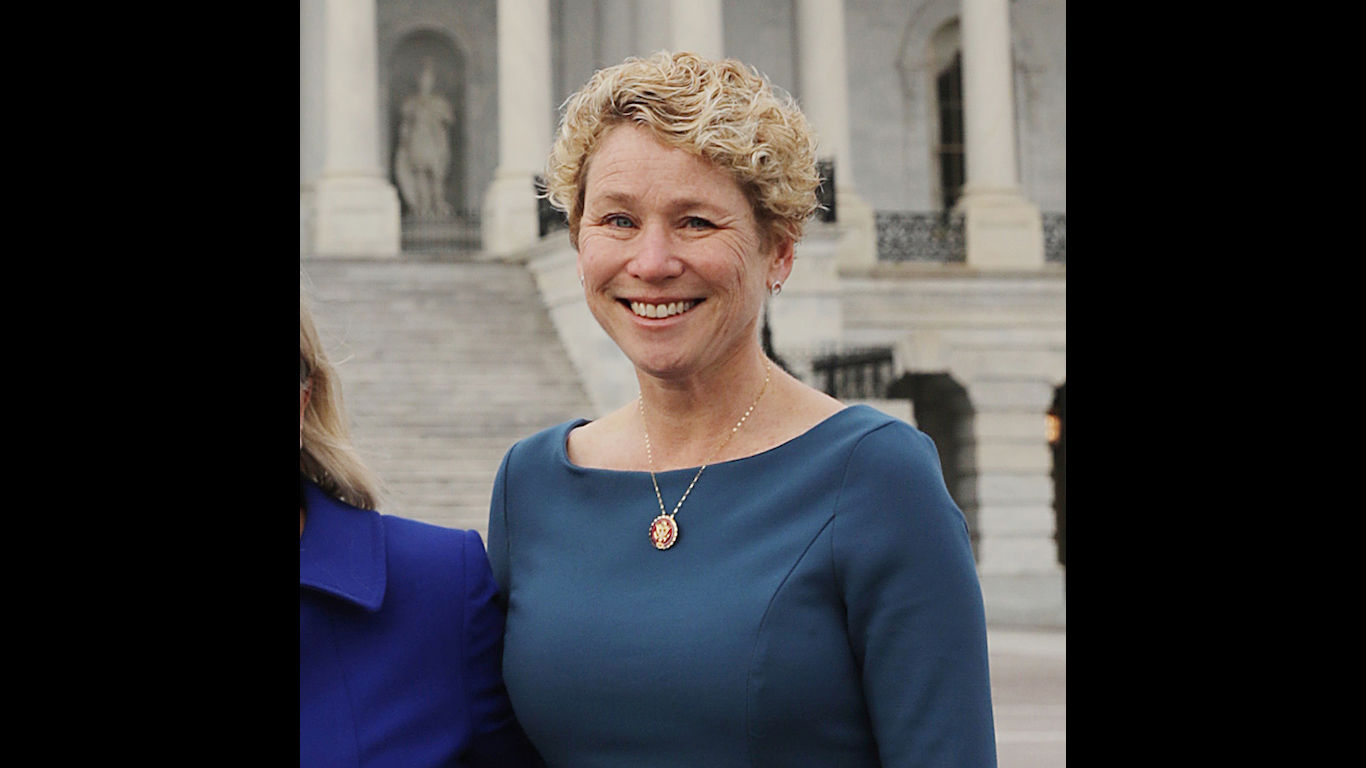
Pennsylvania 6th Congressional District
Assumed office: 2019
Bipartisan ranking: 20
A former United States Air Force Captain, Chrissy Houlahan won her first congressional race in 2018 and was relected fairly easily in 2020 and 2022. She is a member of the Problem Solvers Caucus and New Democrat Coalition. She strongly supports Ukraine and finding bipartisan solutions to border security.
On being recognized for her bipartisan record, she said:
When Democrats and Republicans work together, our nation prospers. Representing a truly bipartisan community here in Pennsylvania has reinforced my belief in the power of collaboration and unity.
Houlahan will run for re-election in November and is expected to win comfortably.
Conclusion
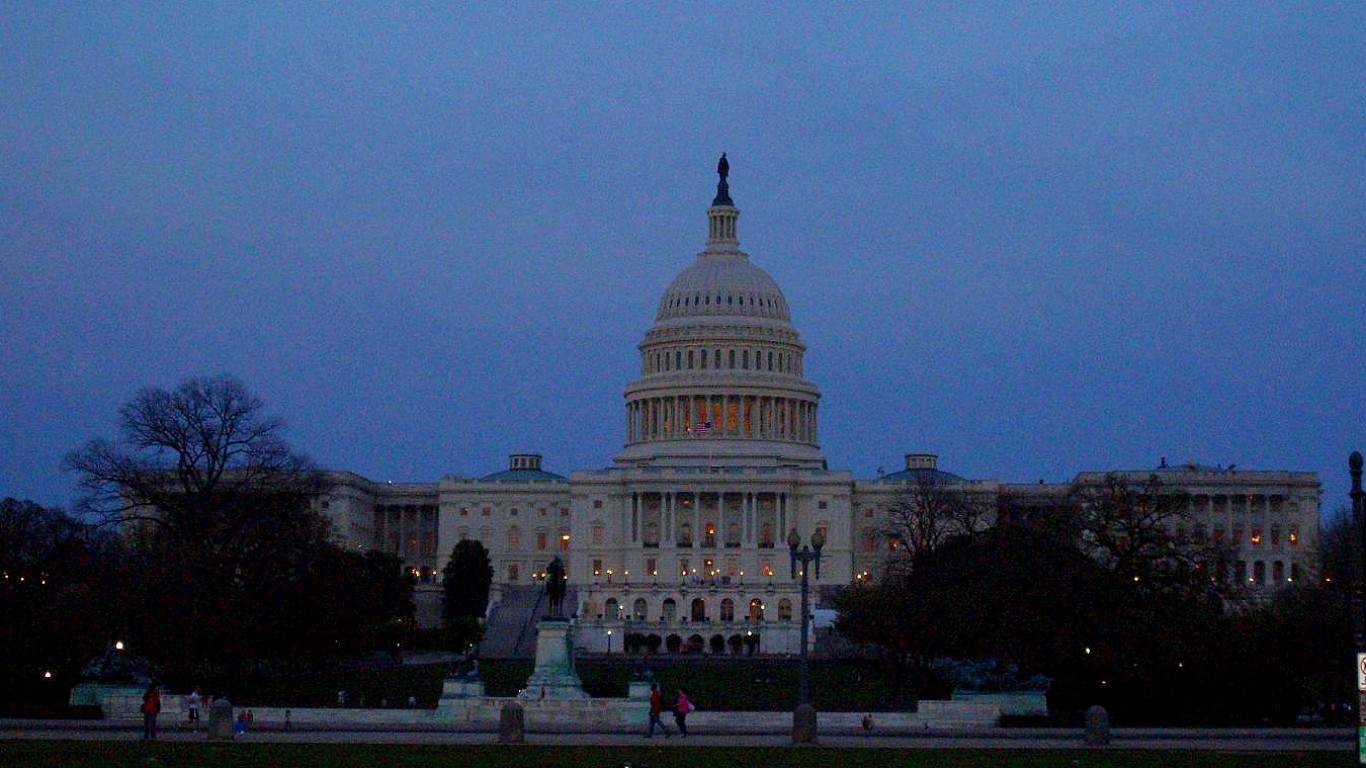
Generally, the most bipartisan Democrats represent swing districts and are members of the Problem Solvers Caucus and New Democrat Coalition. Just like the most bipartisan Republican members, a competitive district tends to make cooperation more important. At least two Democrats featured in this article won’t be in the House in 2025 as they seek different offices. Josh Gottheimer will likely win re-election but leave the House next year to run for governor. Davis, Lee, and Perez face difficult re-election campaigns meaning half of the most bipartisan Democrats might not be in office next year.
With a divided legislature likely after 2024, the most bipartisan members of the House will have their work cut out for them.
Are You Ahead, or Behind on Retirement? (sponsor)
If you’re one of the over 4 Million Americans set to retire this year, you may want to pay attention.
Finding a financial advisor who puts your interest first can be the difference between a rich retirement and barely getting by, and today it’s easier than ever. SmartAsset’s free tool matches you with up to three fiduciary financial advisors that serve your area in minutes. Each advisor has been carefully vetted, and must act in your best interests. Start your search now.
Don’t waste another minute; get started right here and help your retirement dreams become a retirement reality.
Thank you for reading! Have some feedback for us?
Contact the 24/7 Wall St. editorial team.





